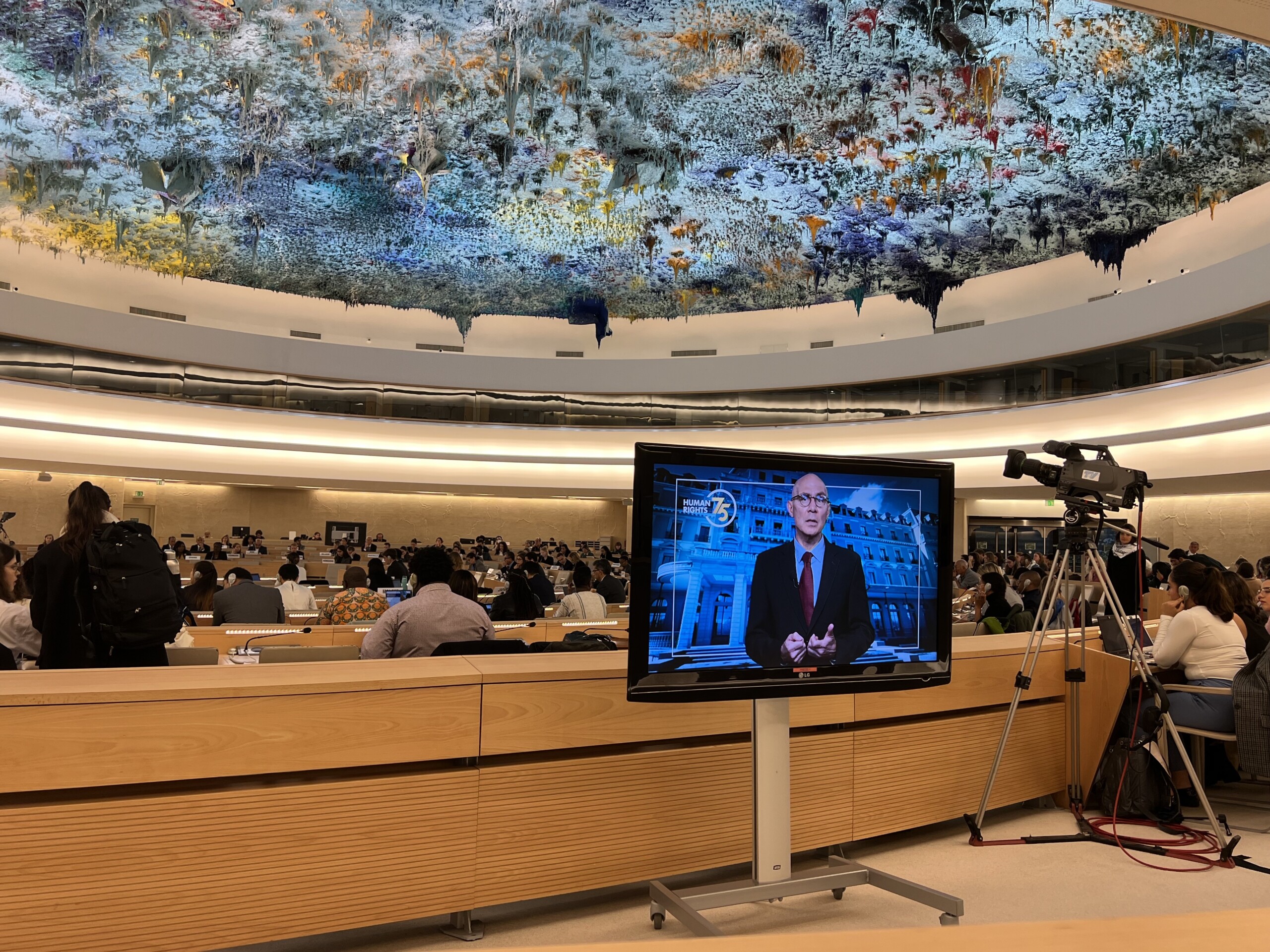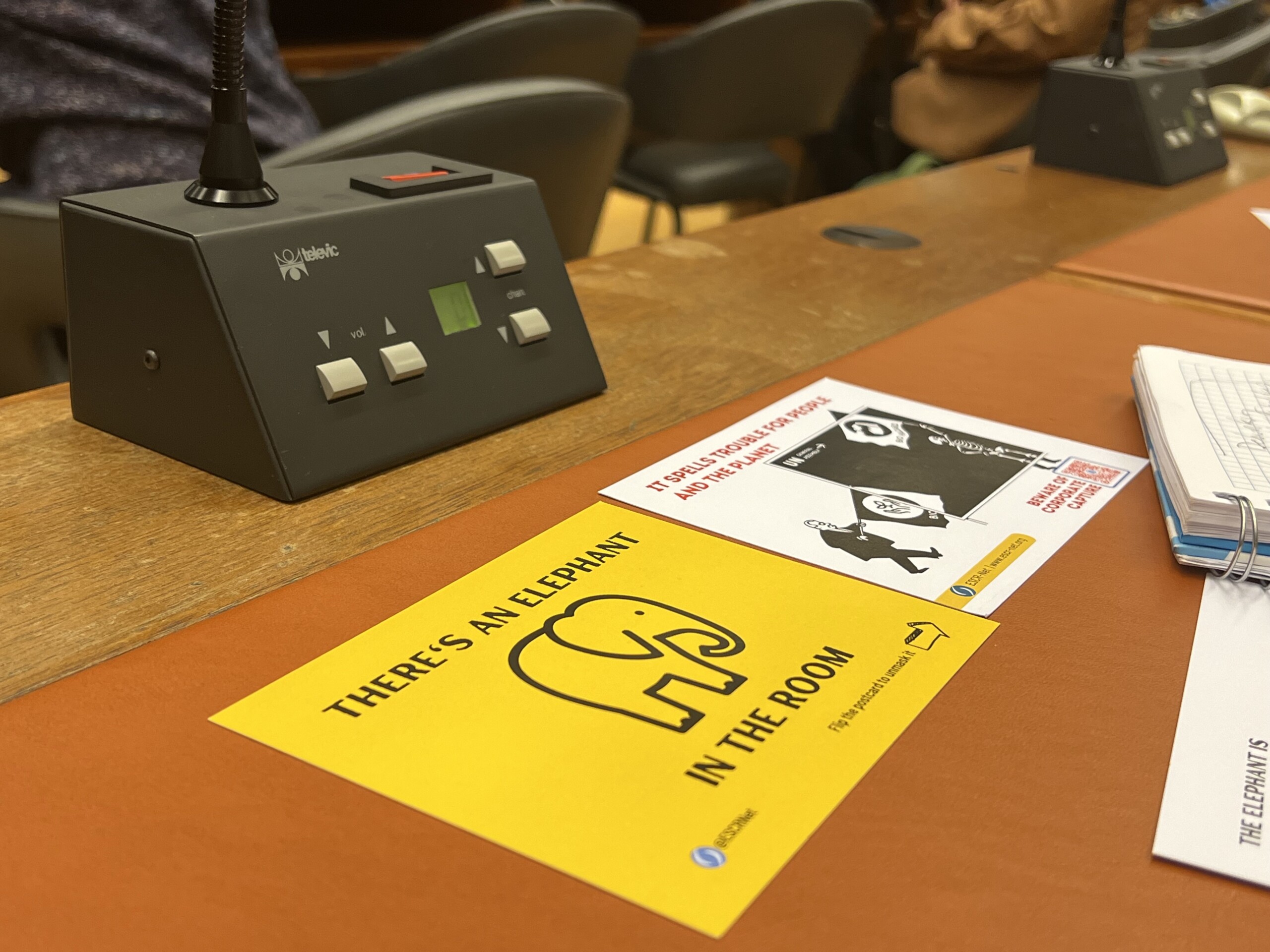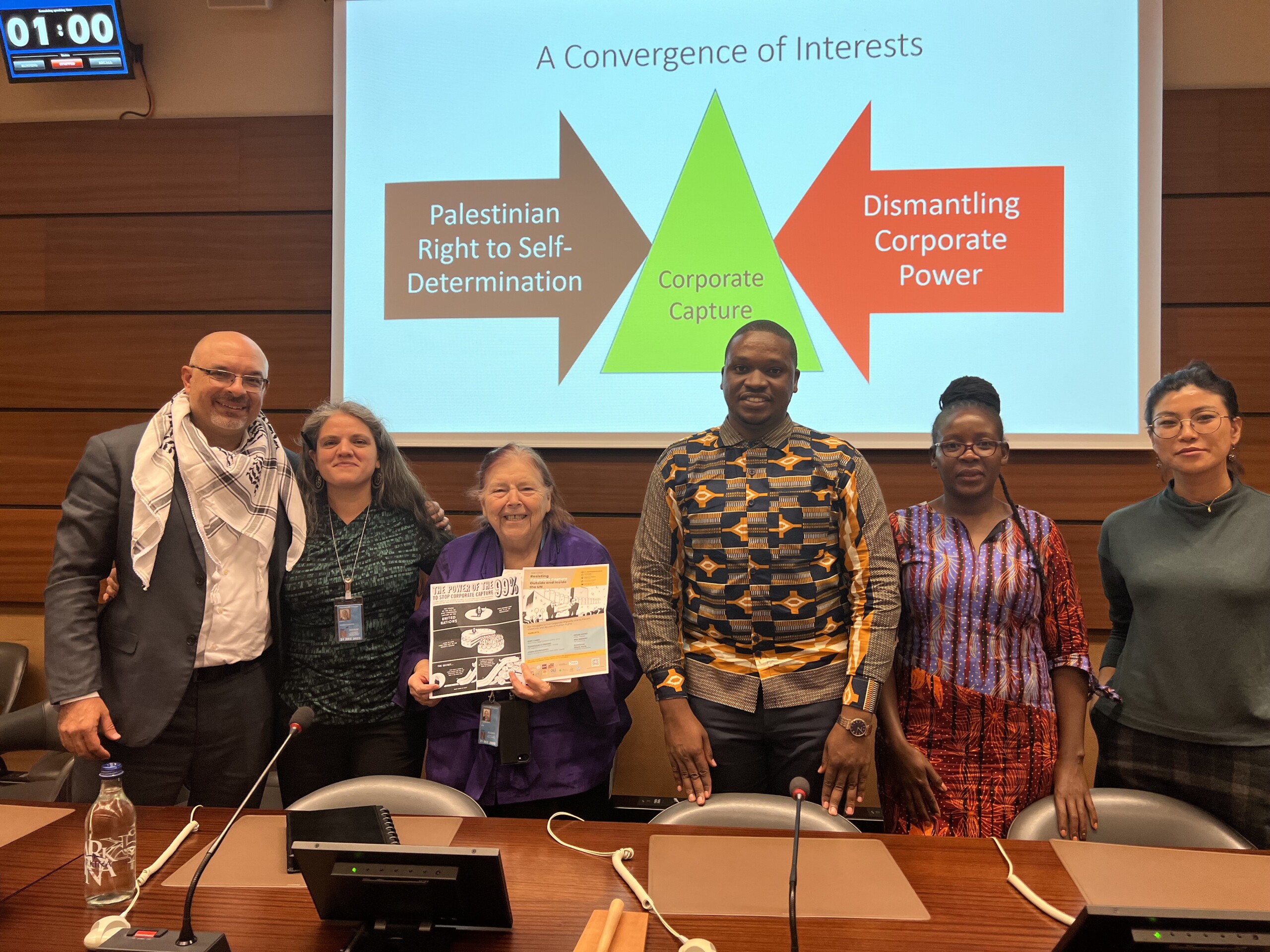From October 23rd to 27th, a delegation from ESCR-Net participated in the negotiations for a treaty to address human rights violations and abuses by corporations. These negotiations took place for the ninth consecutive year at the Human Rights Council in Geneva. The process, which faced moments of uncertainty during a challenging week, has persevered thanks to the determination of some states from the Global South, particularly those in the African group and some Latin American states, along with the concerted efforts of civil society.
Since its inception, this process, initiated through Resolution 26/9, has received strong support from states in the Global South, as well as from social movements, communities affected by the activities of corporations, and feminist and Indigenous Peoples groups.
Mary Kambo of the Kenya Human Rights Commission emphasized the pivotal role of civil society, stating, “This is a very important process. If civil society were not in the room, the behavior we have seen from States, especially those controlled by corporations, and also from the current chair, who can be easily influenced by powerful states and corporations, would be different. The presence of civil society in the room changes the game because everyone now knows that someone is watching.”
Additionally, the presence of business lobbies and associations, such as the International Organization of Employers (IOE), the International Chamber of Commerce (ICC), and the United States Council for International Business (USCIB), was described as the “Elephant in the room” by ESCR-Net. These groups have played a role in influencing the process and states from the Global North, particularly the United States and European Union, in their efforts to dilute and block key provisions related to corporate legal liability, accountability, and extraterritorial obligations of states to prosecute corporate actors responsible for violations and abuses.




